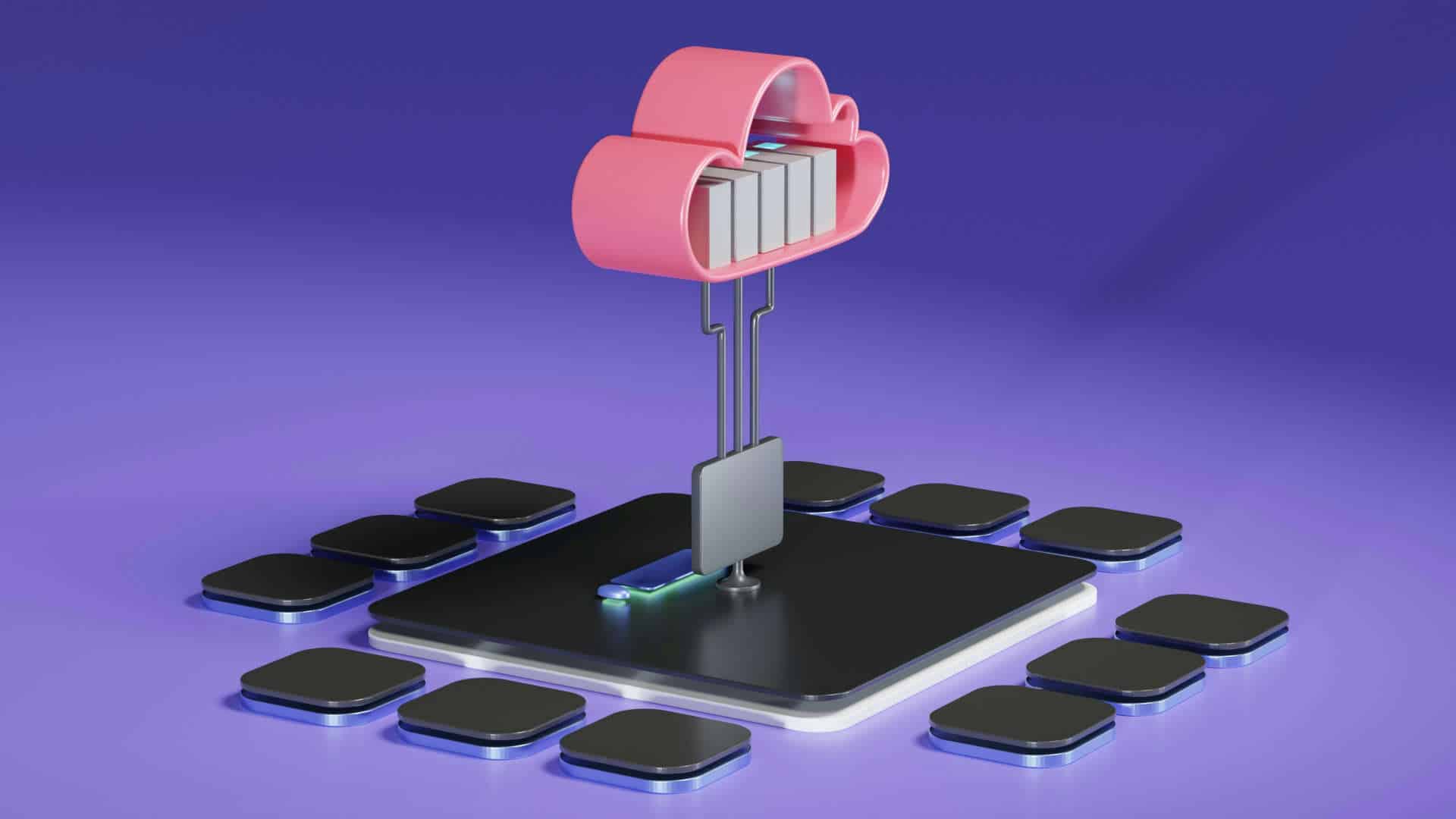The Impact of Cloud Computing in the Medical Device Industry
Cloud computing is a critical baseline for digital transformation across numerous industries, and healthcare technology is no exception. The need for secure, scalable, and compliant data management solutions is more pressing than ever.
Cloud technology provides a robust foundation for data management growth for the medical device industry. It allows medical device companies to focus on innovation while storing, analyzing and sharing their data efficiently and safely.
Managing data is uniquely complex for our industry, a challenging balance between innovation, patient care, and regulatory requirements. Just a few decades ago this was a very cumbersome paper-based process.
Today, cloud computing in the medical device industry streamlines this process by offering secure platforms for data storage, remote monitoring, and real-time analytics—all in compliance with stringent FDA and global regulations. Galen Data has been at the forefront of the cloud transition for our clients from the beginning.
In this post, we’ll explore the key ways that the cloud computing market is revolutionizing the sector.
Enhanced Data Storage Capacity and Management
Medical data, ranging from patient health metrics to device performance analytics, is scaling exponentially. Traditional on-premises storage solutions often struggle to keep up with this influx, leading to issues with scalability, patient data fragmentation, and high maintenance costs. Cloud computing, by contrast, provides a flexible and scalable solution that can provide cost savings in the long run.
With cloud platforms like Galen Data, medical device companies can securely store massive amounts of data without needing constant hardware upgrades or the fear of running out of storage capacity.
Cloud-based solutions ensure that data is centralized and accessible in real-time, making it easier for medical professionals, researchers, and engineers to analyze and act on the information. Furthermore, cloud storage solutions enable companies to meet compliance requirements for data integrity and security, a critical factor given the sensitive nature of healthcare data.
For companies looking to scale their operations or introduce new devices to the market, cloud computing offers the ability to manage data seamlessly across geographies, devices, and teams. This level of scalability is crucial as devices become more interconnected and the demand for real-time data increases.
By leveraging the cloud, companies can focus on their roadmap milestones and core competency rather than managing complex big data infrastructures.
Improved Data Security and Compliance
Data security challenges and regulatory compliance are paramount concerns in the industry. Connected medical devices often collect sensitive health information that requires protection for enhanced patient privacy and to meet stringent global regulatory standards such as FDA regulations, HIPAA in the U.S., and GDPR in Europe.
Ensuring compliance can be overwhelming for medical device companies, especially as regulations evolve and penalties for non-compliance increase.
Cloud computing plays a vital role in mitigating these challenges. Modern cloud platforms have built-in security features like end-to-end encryption, multi-factor authentication, and real-time monitoring. These security measures protect data from unauthorized access, breaches, or loss. Additionally, the cloud provides automatic software updates, helping companies stay compliant with the latest regulations without requiring manual intervention.
Compliance audits can be particularly burdensome, requiring detailed documentation and proof that a company meets all regulatory standards. Cloud solutions simplify this process by offering detailed logs, access controls, and audit trails.
These tools allow companies to easily demonstrate compliance with global regulatory frameworks, reducing the time and resources spent preparing for audits. Cloud adoption lets device companies focus on their core mission of improving patient outcomes while trusting that security and compliance needs are covered.
Facilitating Remote Monitoring and Telemedicine
The rise of telemedicine and remote patient monitoring has been one of the most significant transformations for healthcare organizations in recent years, further accelerated by the global pandemic. Cloud computing is at the heart of this revolution, enabling continuous and real-time monitoring of patients from anywhere in the world.
Devices that collect electronic personal health data—such as heart rate monitors, glucose meters, or wearable fitness devices—can now relay information directly to healthcare providers in real time via the cloud. This allows doctors to maintain patient engagement and monitor conditions continuously without requiring frequent in-person visits.
For device companies, adopting cloud computing simplifies the integration of their devices with telemedicine platforms, ensuring that data is transferred securely and accurately. This real-time data sharing may contribute to improved patient outcomes by enabling quicker interventions and more personalized care plans.
Moreover, cloud service platforms provide the infrastructure to store and analyze vast amounts of remote monitoring data, giving healthcare industry providers the insights they need to make data-driven decisions about patient care. For example, devices can now augment electronic health records to include predictive analytics features that help anticipate health issues before they become critical, further empowering patients and doctors.
Another way cloud-based remote monitoring reduces healthcare sector costs is by minimizing the need for hospital admissions or in-person consultations. This shift towards telemedicine opens up new opportunities for companies to innovate and expand their product offerings.
Boosting Innovation and Scalability
While innovation is at the core of the medical device industry, it can add complexity to IT infrastructures that can slow down the pace of new developments. By leveraging the cloud, companies can focus more on advancing their medical technologies and healthcare software development, freeing up resources for innovation rather than managing complex data infrastructures.
Cloud data service solutions also make it possible to accommodate an influx of data from newly launched devices or even different healthcare facilities, without worrying about server capacity or infrastructure costs.
The scalability of cloud computing is particularly crucial for startups or smaller device companies looking to grow. Companies can scale their cloud usage based on demand instead of investing in costly, on-premises data centers. This flexibility reduces upfront capital expenditures and lowers operational costs, freeing up resources for research and development.
Testing and Development
Cloud based platforms offer a robust environment for testing and development. Companies can quickly prototype, iterate, and refine their innovations in the cloud. Rapid testing capability accelerates the product development lifecycle, allowing companies to bring innovative solutions to market faster.
The cloud provides the infrastructure to store, analyze, and act on the data they generate, ensuring that innovation is supported every step of the way.
Enhancing Collaboration and Data Sharing
Collaboration is vital to success, whether it involves internal teams, healthcare systems professionals, or regulatory bodies. The challenge is that data silos and fragmented systems often hinder effective collaboration, especially when multiple parties are working across different locations or time zones. Cloud computing addresses this issue by creating a centralized platform to access, share, and analyze data in real-time.
With cloud platforms, teams seamlessly share patient data, device performance metrics, and research findings across departments and geographical locations. This fosters better collaboration within a company and between companies, healthcare industry providers, and regulatory agencies.
For example, cloud-based healthcare solutions enable faster and more efficient data sharing during clinical trials, allowing trials to be monitored and adjusted in real time.
Additionally, cloud based platforms improve transparency and streamline communication with regulatory bodies. Medical device companies can provide regulators access to necessary data, reducing time to gain approvals or address compliance questions. This accelerates the regulatory process and helps build trust with healthcare organizations and stakeholders by demonstrating a commitment to data integrity and security.
Moving Ahead with Cloud Computing in the Medical Device Industry
As cloud computing continues to reshape the medical device industry, companies adopting the cloud will gain significant advantages in innovation, scalability, security, and collaboration.
At Galen Data, we understand the unique challenges that companies face when managing data securely and efficiently. Our platform is designed to meet the industry’s specific needs, ensuring that your data is stored, managed, and analyzed in compliance with global regulations. Whether you’re looking to scale your operations, innovate with new devices, or improve security, we’re here to help.
Partner with Galen Data today to:
- Develop a secure and scalable data management plan.
- Leverage our expertise in data and compliance.
- Focus on innovation while we handle the infrastructure.
Reach out today to discuss your situation and see how Galen Data can help you store, manage, and secure your data at scale.






